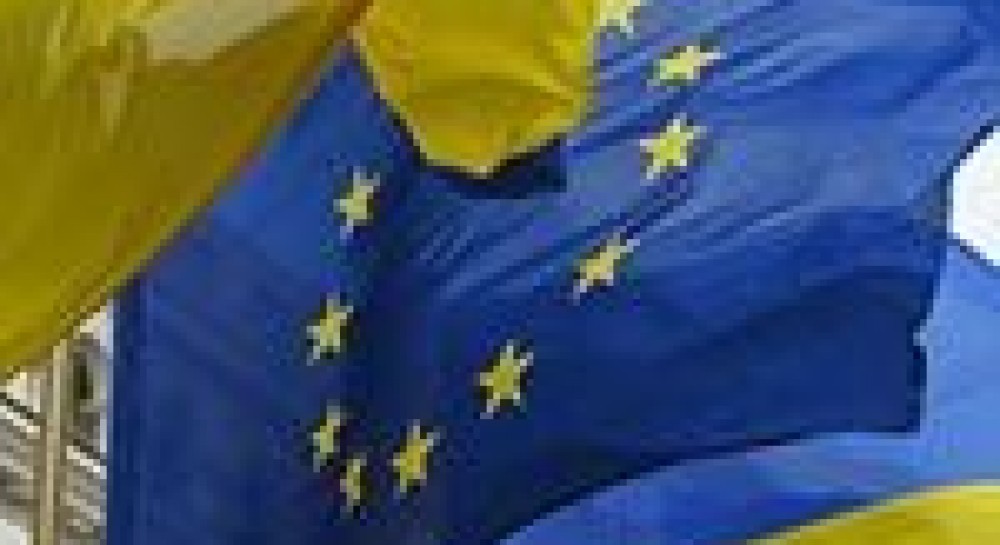
Corruption in Kiev and an E.U. Trade Pact
While questionable political and commercial practices are major problems across Ukrainian politics, the 2009 gas deal between Tymoshenko and Vladimir Putin was exceptional for the damage it did to Ukrainian interests. This was a deal that...
From Western capitals it’s far too easy to see the prosecution of the Ukrainian opposition leader Yulia Tymoshenko as another example of post-Soviet repression, according to The New York Times. In reality, there are some serious questions surrounding her behavior in office over and above the usual corrupt practices of the region. Rather than directly challenging the prosecution, Washington and Brussels should insist on a greater commitment to rule-of-law standards in Kiev. Given that the European Union is in the process of negotiating a major trade deal with Ukraine, Brussels should be leveraging the Tymoshenko case to reinforce the rule of law there.
While questionable political and commercial practices are major problems across Ukrainian politics, the 2009 gas deal between Tymoshenko and Vladimir Putin was exceptional for the damage it did to Ukrainian interests. This was a deal that even Tymoshenko’s own cabinet refused to ratify along with the then head of the state energy company Naftogaz. It was only finally settled on her own authority.
The deal imposed a very high base price for gas of $450 per thousand cubic meters; a strict payment regime, which following any default could force Ukraine to pay for gas in advance; very high take-or-pay clauses that forced Ukraine to pay for gas it could not possibly use; and no ship-or-pay obligations on Gazprom (hence Gazprom, without penalty, could reduce shipments to Ukraine).
The deal’s impact on Ukraine’s economy and consumers was extremely negative. Ukrainian gas prices have remained substantially above those of most Western European countries. Ukrainian industries such as steel and chemicals have been hit hard by higher gas prices and greater competition from Russian rivals benefiting from much lower domestic gas prices. The deal’s high take-or-pay volumes made the situation worse for Ukrainian consumers and industry, as Ukraine was forced to pay for gas it did not need. This problem has been compounded by the economic crisis. As demand collapsed the take-or-pay clauses became more onerous.
It is unclear why Tymoshenko agreed to this very one-sided deal. Various reasons are given by opponents and supporters. One government version is that she signed the deal in order to settle a Russian case against her involving her old firm United Energy Systems of Ukraine and the Russian defense ministry. Another view is that Tymoshenko agreed to the deal to ensure Russian support during the Ukrainian presidential elections. Her supporters assert that she acted to ensure continued gas flow through the winter. However, many independent observers question why she did not call on Washington and Brussels to help pressure Moscow for a better deal?
Brussels and Kiev are in the final stages of completing the so-called Deep and Comprehensive Free Trade Agreement. There are calls in a number of E.U. capitals and Washington for Brussels to suspend the trade pact in order to force Kiev to end the prosecution of Tymoshenko.
While the West is right to be concerned by the prosecution of any political leader in the former Soviet sphere, its focus should be much more targeted on improving the rule of law in Ukraine. Rather than Brussels threatening to suspend negotiations on the trade agreement, Brussels and Washington should use the Tymoshenko case to promote the rule of law in Ukraine. Brussels, supported by Washington, should be looking for a side agreement on the rule of law as it negotiates the trade accord.
Brussels should recognize that adherence to the rule of law by Ukraine is a vital E.U. interest. One of the major concerns over the trade agreement is that the European Union will provide greater market access for Ukraine but that Ukraine will not reciprocate. Ukraine’s high levels of corruption and noncompliance with the rule of law will make it very difficult for Kiev to provide Western businesses with real market access according to modern trading standards.
A side agreement to the trade accord should include the creation of an independent international judicial commission to reinforce judicial independence. It should also include requirements to establish independent and properly funded agencies to underpin competition, promote trading standards and battle corruption.
Such a side agreement would boost the chances of successful implementation of the trade accord for all parties to the deal. It would also make the trade agreement much more economically effective in Ukraine, boosting competition, reducing corruption and opening up economic opportunity for both ordinary Ukrainians and foreign businesses.
The comprehensive free trade agreement should not be jeopardized by the Tymoshenko case. A great deal of effort has been deployed by both the European Union and the Ukrainian government to deliver a final agreement. Kiev has stood up to immense pressure from Moscow, which is very hostile to the trade accord and wants Kiev to join its own customs union. Rather than withdrawing from the trade accord and leaving Kiev with little option but to head in Moscow’s direction, the West should be seeking to bring more European standards to Ukraine.
Alan Riley is a professor of law at City Law School, City University, Grays Inn, London.
By ALAN RILEY, The New York Times

